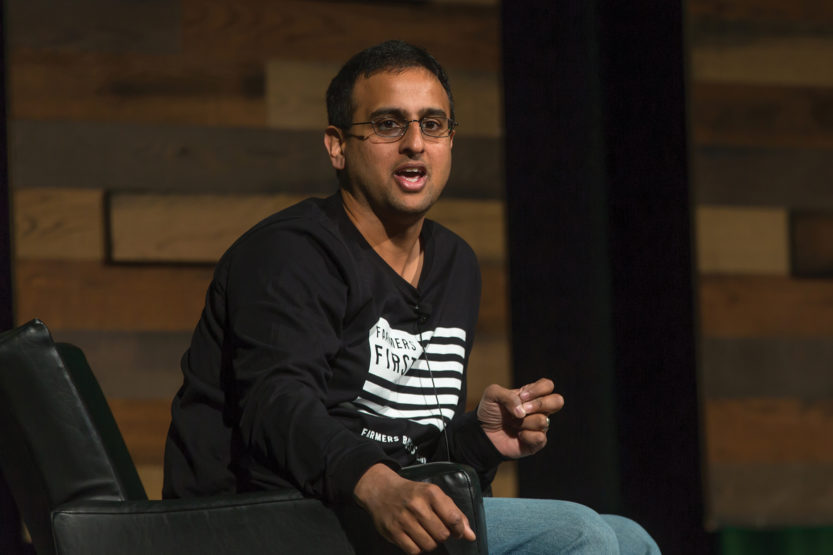Amol Deshpande: Illini entrepreneur and cultivator
 “If there’s an economic benefit to sharing their information, farmers are glad to do it,” says Amol Deshpande, CEO and co-founder of Farmers Business Network. (Photo courtesy of Amol Deshpande)
“If there’s an economic benefit to sharing their information, farmers are glad to do it,” says Amol Deshpande, CEO and co-founder of Farmers Business Network. (Photo courtesy of Amol Deshpande) Farmers tend to operate independently. Amol Deshpande, ’00 LAS, is changing that with Farmers Business Network, a farmer-to-farmer network in which members share data about fertilizer, chemicals, seeds and more. The CEO and co-founder talked to us about how his company helps farmers.
What’s your personal connection to farming?
My dad spent a lot of his career working with farmers on environmental issues—like how to create bioenergy. He introduced me to a guy who had invested in an indoor fish farm. That gave me the opportunity to learn about the agriculture industry [after college] and I fell in love with it.
How did the concept of Farmers Business Network originate?
From working on the fish farm, I discovered that farming is a low-margin, labor-intensive business where you have very little control, and you deal with a lot of volatility and risk. I feel it’s essential that farmers share insights and knowledge and collaborate, so that they can [prosper]. In farming, information is typically anecdotal and shared at the coffee shop. [By comparison, we independently verify and fact-check the data and share it with the community.] Everybody benefits.
How does FBN help a farmer in, say, Peoria?
It could be as simple as helping a farmer realize that there’s another hybrid [seed] available that will work as well [as what he’s using] but at a lower cost. That change may save a farmer $5 or $10 an acre in costs. For a 3,000-acre farmer, that could translate into a $15,000-$30,000 increase in profitability.
How do you add farmers to your network?
If there’s an economic benefit to sharing their information, farmers are glad to do it. We have a network of 3,600 farmers. A lot of our new business is referral-based. We also have a large and growing sales team in the field. We’re up to 130 employees, and we’ll probably double that over the next
18 months.

